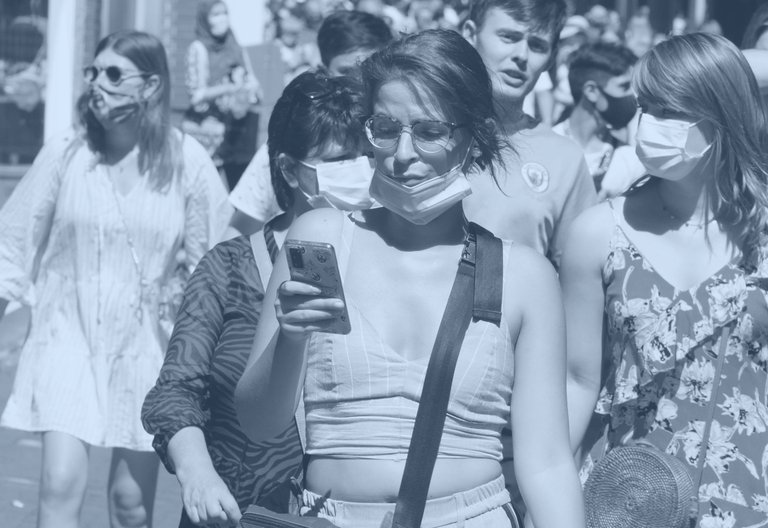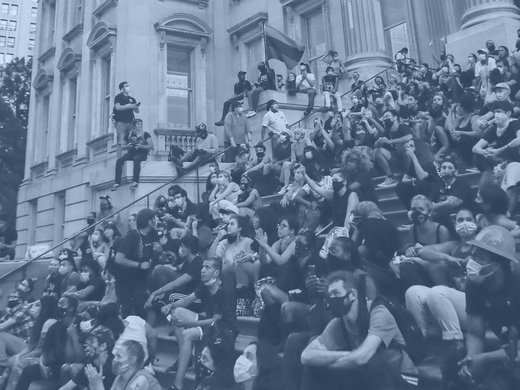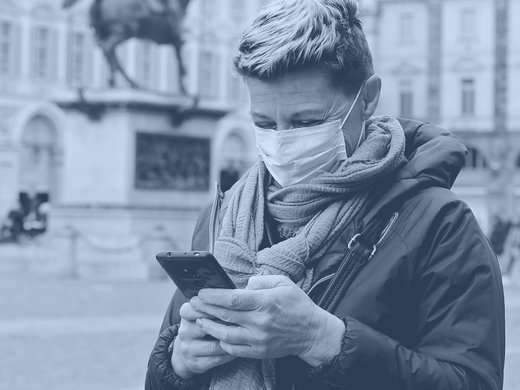he COVID-19 pandemic has exposed our failures as a society with merciless clarity. The virus does not abide by our ideological pretences or nationalist rhetoric. It has revealed our deep structural inequalities and laid bare the weaknesses in our institutions of social welfare and democracy. One of the most acute and pernicious problems the virus has surfaced is the danger of undermining the reliability of information in our democracies.
This is dangerous because trust is a critical value in a crisis. We are all desperate for the information that will keep our families safe. People need to know where to go to get help. And we want answers about what brought this disaster and how it will end. What’s more, in this moment of crisis, we need information to be fast, accurate and consistent so that we can all act in a coordinated way. Accomplishing this is exceedingly difficult in a fragmented and polluted media ecosystem.
The search for trusted information in a crisis exposes the architecture of power at the intersection of media, society and government — and it’s not what it used to be. Newspapers and broadcasters dedicated to public service journalism remain central to the media landscape, but they are no longer the gatekeepers of the information distributed in society. For better and (mostly) worse, that role is now played by digital media platforms such as Google and Facebook. The products and services these platform companies offer have no pretense to serve the public good. When it comes to media, they are built to maximize corporate profit at the expense of any other interest. The editorial role is now played by complex algorithms. They operate at a scale that makes any form of content moderation immensely challenging and almost certainly devoid of local context, culture and histories. Internet platforms are not designed to give us quality information; they are calibrated to maximize attention capture. The result is that conspiracy theories about the pandemic are flooding Facebook, YouTube and Twitter. It turns out that replacing newsroom editors with advertising technology is a terrible deal for democracy and society.
This means that misinformation, disinformation, online hate, state propaganda and partisan news are not simply unfortunate by-products of an open internet. They are due to structural flaws in our information ecosystem that damage every aspect of the relationship between media and society, including exacerbating a public health emergency.
The platforms — to their credit — have made some efforts to try and push back against the public-health-harming noise cascading over their systems. They have done some unprecedented things — such as shutting down Brazilian President Jair Bolsonaro’s Facebook Live feed, putting out public service announcements with content from the World Health Organization and pulling down content that pushes conspiracy theories about COVID-19. But these efforts aren’t nearly enough.
The technology keeps pushing forward harmful content. False accusations about migrants carrying the COVID-19 virus, fake remedies and cures, attacks on geopolitical, cultural or political adversaries to blame them for the pandemic, and good old-fashioned conspiracies circulate unabated. The usual suspects of organized bad actors (clickbait profiteers, intelligence agencies and so forth) and self-interested vectors of false information (Fox News, Breitbart and the White House, for example) are able to exploit the tech platforms’ distribution systems with near impunity. The attention optimization model of information distribution is impossible to turn into a quality information delivery system. This is because the flaws in our digital public sphere are embedded into the design and business models of our technologies.
So, we have a fundamental component of democratic society — quality information production and distribution — that has been completely upended by a new marketplace of online media. It is controlled by global platform companies whose priority is ad revenue at the expense of everything else. That means production and audiences have been fragmented, even as distribution has been monopolized. And, in a crisis, this new model has failed. It cannot meet public needs, and it is actively making things worse.
As we reimagine the world post-COVID-19, we believe that we will see a wholesale rethinking of our information ecosystem. Never again can we be so cavalier as to assume that the quality of information in our society can be left up to the financial incentives of a small number of global companies. Never again can we let automated systems determine the character of our public sphere. Never again can we give licence to companies to profit from conspiracy, fraud and hate speech to be prioritized over public service.
In short, the post-pandemic world will see new forms of governance to realign the commercial incentives of big tech with the values of democracy and social welfare. This governance does not mean a government-imposed standard for truth or draconian limits on free speech — that would not be consistent with democratic values. And what we have learned watching the richest companies in the world trying to police harmful content on their systems is that it doesn’t work very well. Of course, there is a role for more effective detection and removal of demonstrably illegal content. But the bulk of the work here must be focused on other solutions.
First, the starting point for restoring a healthy relationship between media and democracy will be rules governing data and algorithms. It may seem counterintuitive to solve a problem with harmful content by focusing on the collection and use of data, but doing so is at the heart of the matter. The sins of the attention-maximization system of digital media monopolies originate in the massive dragnet of data they collect every day that in turn informs audience profiling and content targeting. This data feeds an automated system of information curation (what used to be the work of the newsrooms) that is programmed to service the advertiser, not the public. With modernized rules that limit data collection and restrict how it can be used, we could weaken the machine of disinformation. And with clear rules that empower users, we will transform the algorithms that currently divide us and tear down public trust in media.
Second, every major industry that has a deep impact on social welfare — financial services, pharmaceuticals, the automotive sector, natural resource extraction — is overseen by public institutions. Global companies that control information markets should be no different. Their oversight will mean creating new global institutions to develop international policy for the intangible economy. We will see global governance overseeing the flows and storage of data, coordinating content-moderation policies, and forcing norms of transparency on the financial and algorithmic models that drive the attention economy. We will also see countries, finally, begin to coordinate their digital polices in order to create enough market pressure to change the behaviours of these global companies. Major interventions in competition policy to restrain the power of monopolies, reshape markets and open opportunities for new entrants will be critical.
Third, while we are building new rules to hold these giants accountable, we will also begin to see a new wave of investment in public media and digital literacy. For too long, we have let public service journalism — a pillar of any successful democracy — crumble into dust. The crisis of public health information accompanying this pandemic will be our wake-up call.
In our post-pandemic world, there will no longer be any doubt about the tragic consequences of leaving control over reliable public information to the incentives of the attention economy. Citizens will demand a better world, and democratic governments will finally rise to the challenge of governing our digital public sphere.
A version of this article first appeared in The Montreal Gazette.






